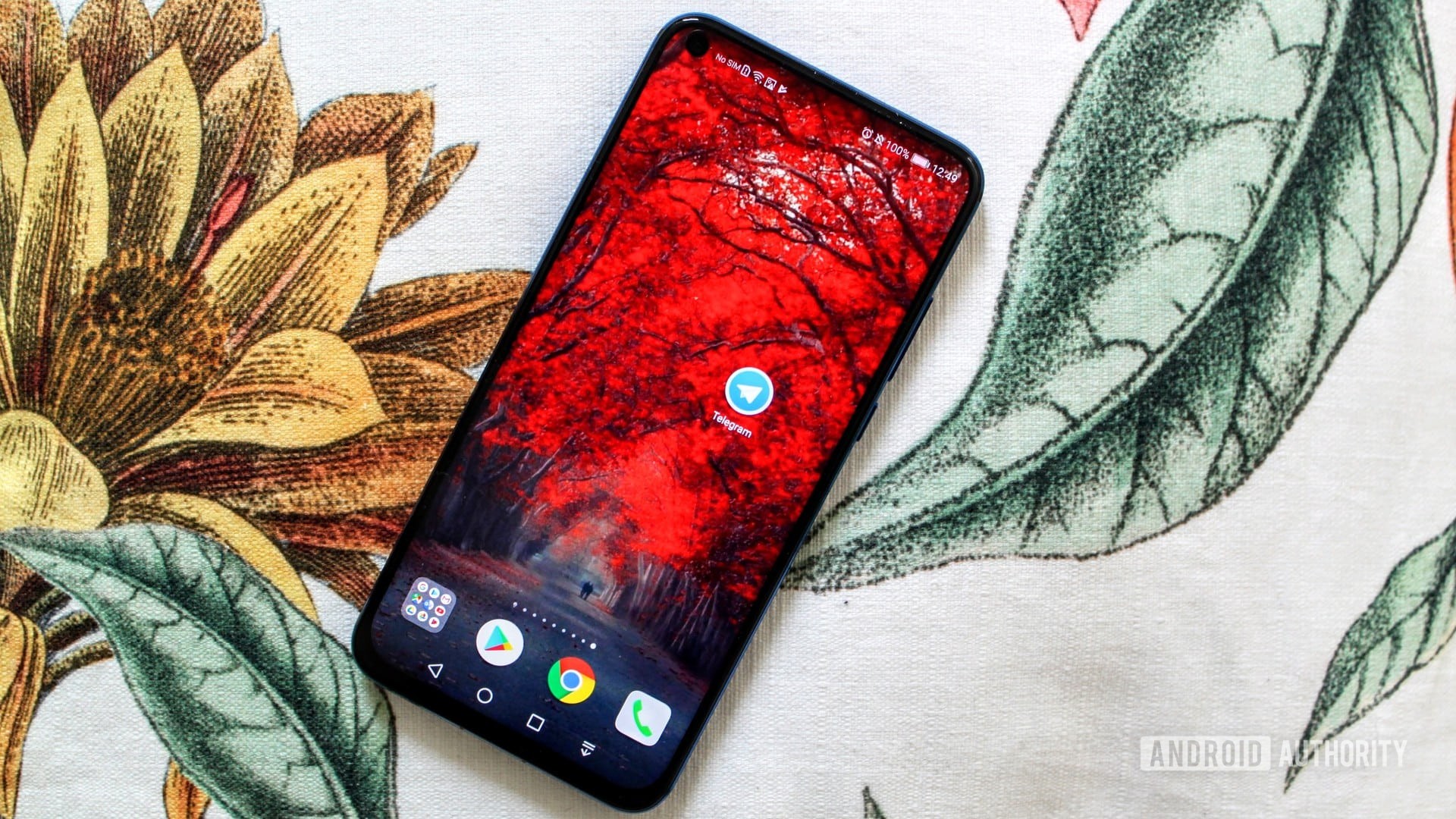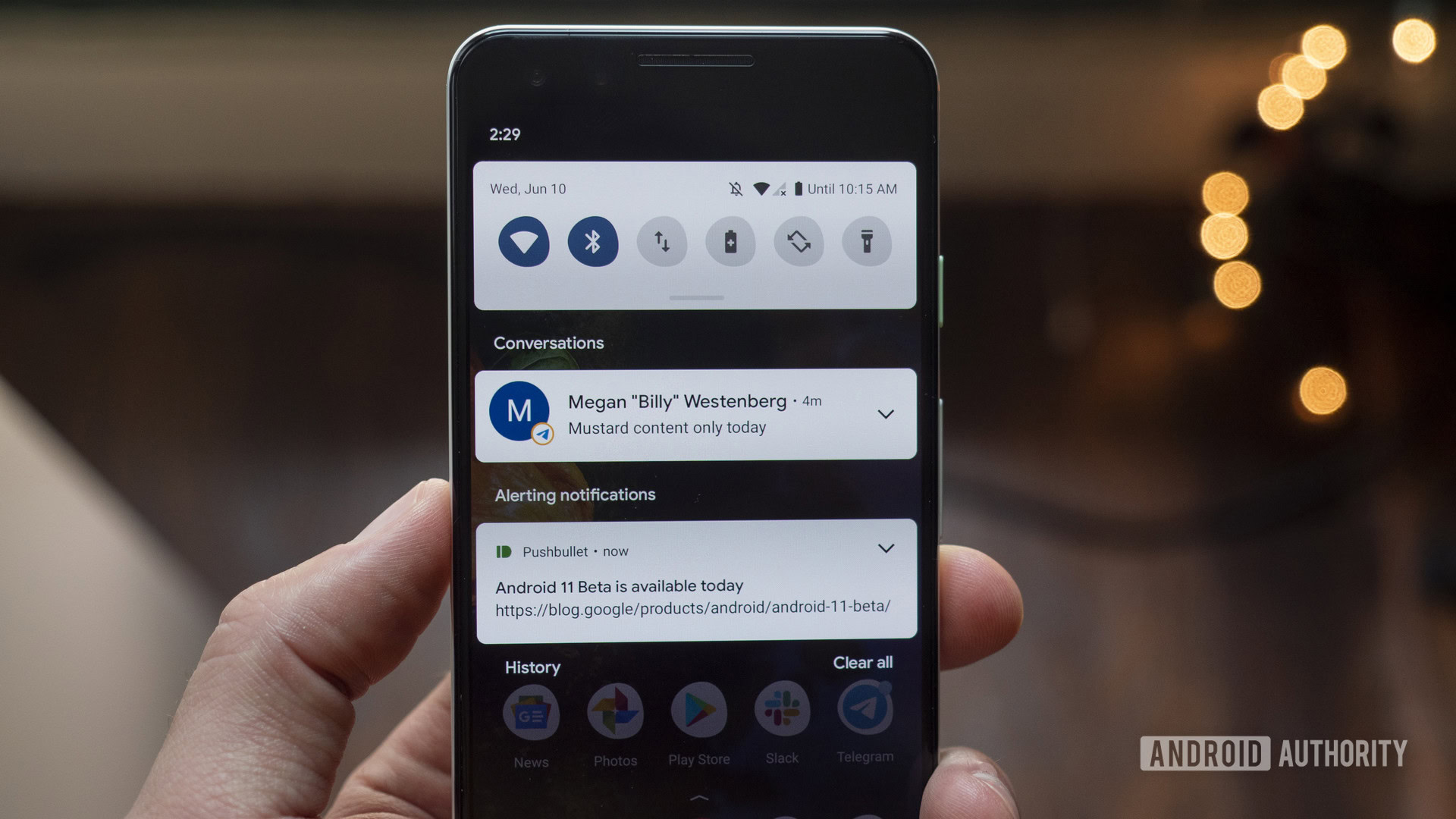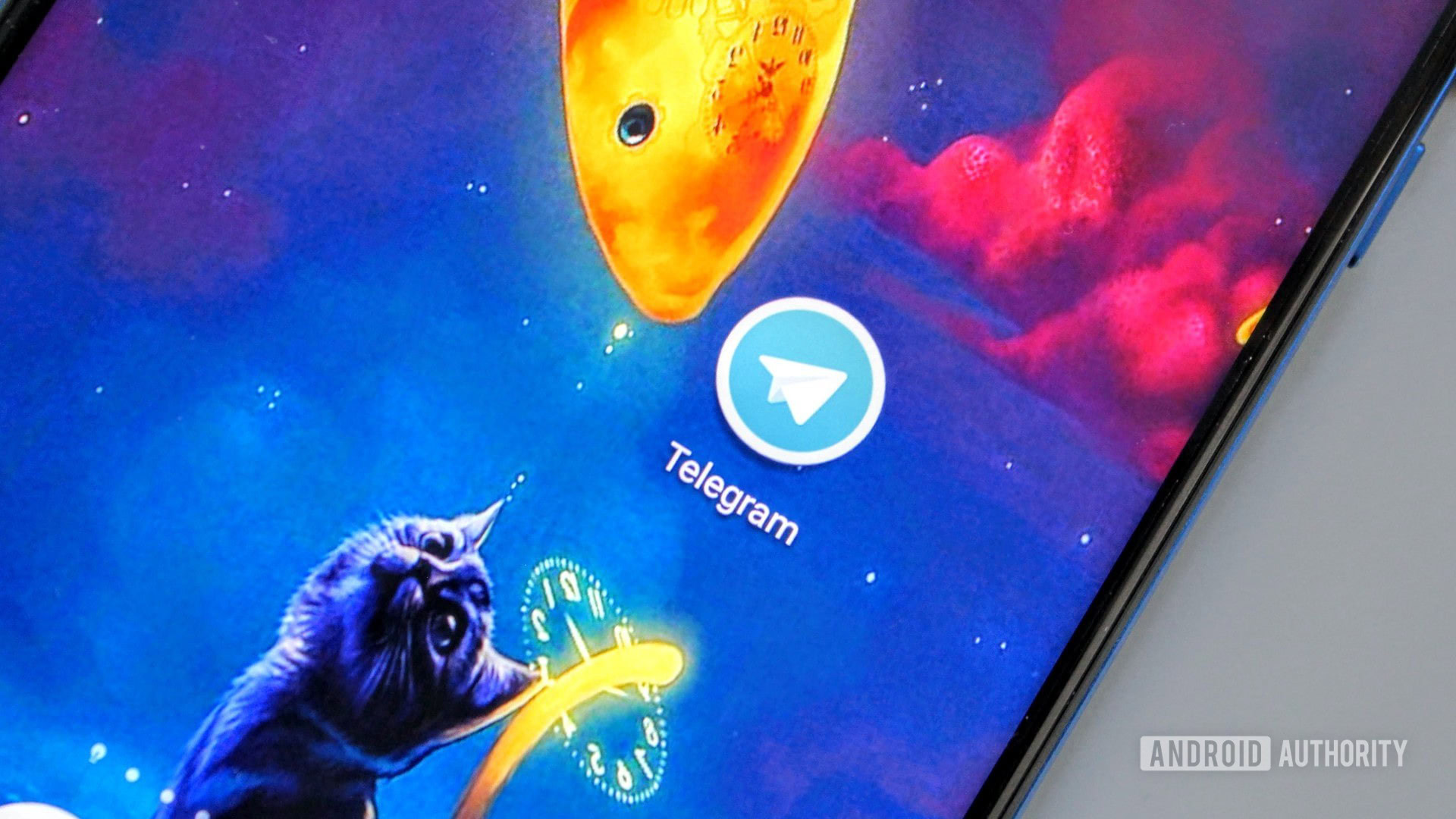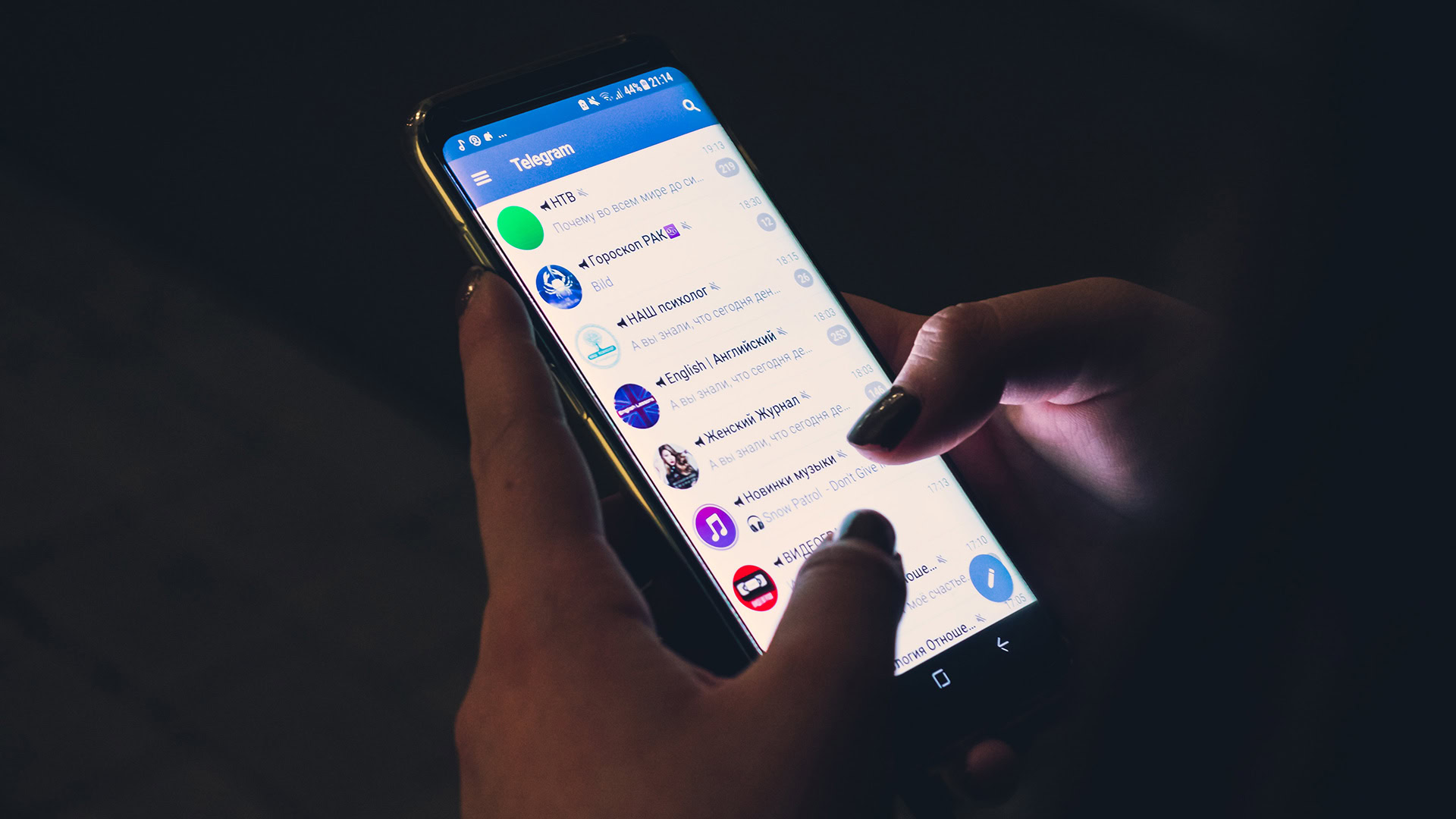Affiliate links on Android Authority may earn us a commission. Learn more.
What is Telegram and why should I use it?
February 15, 2025

Telegram may be among the most popular messaging services in the world, yet many still don’t know what it’s all about. The app is often name-dropped in discussions regarding online privacy and security, but aren’t most, if not all, messaging apps secure? Don’t more popular apps like WhatsApp and Facebook Messenger (despite their ties to Meta) also have the fabled “end-to-end” encryption? What makes Telegram so special?
Keep reading to learn about Telegram, its main features, and why you might want to consider using it. You can also download the app right away at the link below.
What is Telegram?

Telegram is a multi-platform messaging service founded by Russian-born entrepreneur Pavel Durov, although it was temporarily banned in Russia and has no affiliation with any government or company. It first rolled out on iOS and Android in late 2013, and now has an estimated 900 million monthly users. Telegram’s user base tends to increase whenever a privacy scandal hits one of its larger competitors.
What makes Telegram unique is its focus on privacy, encryption, and an open-source API. In addition to the official Telegram apps and web interface, there are countless unofficial clients. Telegram also allows multiple devices to use the same account (verified by SMS) and multiple accounts on the same device.
How does Telegram work?

Telegram’s core functionality is the same as most other messaging apps: You can message other Telegram users, create group conversations, call contacts, make video calls, send files and stickers, and so on. However, there are a few specific features that make it work differently from other chat apps.
First and foremost, Telegram’s headline feature is privacy, and to ensure this, it employs end-to-end encryption. This is what stops those outside a two-way conversation — be it a company, the government, hackers, or anyone else — from seeing what has been sent.
However, Telegram only uses this encryption in calls and its “secret chats” feature, not in regular chats. Those are only encrypted client-to-server. Meanwhile, WhatsApp, the supposedly less secure service, has used end-to-end encryption in all messages, calls, and video calls since 2016.
Telegram is all about privacy and security, and it isn't beholden to larger companies like Facebook.
This is due to Telegram’s enhanced use of the cloud. Essentially, it stores all of your messages and photos on a secure server. This means you can access them from any connected device, making Telegram much more multi-platform friendly than other chat apps like WhatsApp.
Another security feature that adds usability is usernames. Instead of giving people your phone number, you can simply give them your username. This gives you better control over what information is out there, and how people can contact you in the future. If you want even more privacy, you can generate a temporary QR code so people can add you without a username or phone number.
Telegram also offers Stories, which have been a popular feature on other social media and chat apps. All members can view, post, or interact with Stories, but Telegram offers extra features to Premium subscribers. This is better than before, though. At launch, only paid members could post Stories.
Is Telegram safe to use?
Telegram is generally as safe as or safer than most other chat apps. WhatsApp’s end-to-end encryption on all messaging could be argued to be a better approach, but the company’s ties to Facebook/Meta may turn off privacy advocates.
Plus, if you’re using the “secret chats” feature, you’re getting the same level of end-to-end encryption. On top of this, users can’t forward or screenshot messages in secret chats, and messages can be programmed to self-destruct. Deleting a message also deletes it for everyone on the service, and users have the option to delete not just their own messages, but other users’ messages, too. It’s also worth mentioning that all chats are encrypted, even if not end-to-end encrypted.
Telegram is safer than most chat apps, but you will still need to protect your devices.
Another thing to remember is that selling your data isn’t at the core of Telegram’s business model. According to Telegram’s FAQ page, the company was mostly funded by its founder and CEO, Pavel Durov, not through advertising or data collection and sharing. However, this changed in 2021. Telegram started introducing “minimalist, privacy-conscious advertisements that can appear in certain public channels.”
On the same page, Telegram also lists one of its two tenets of internet privacy as “protecting your personal data from third parties, such as marketers, advertisers, etc.” That puts it in stark contrast to a myriad of services from Facebook, Google, Amazon, and others.
Ultimately, though, using Telegram doesn’t necessarily mean your messages are more private or secure than when using WhatsApp or other messaging apps. Server-side data leaks can still happen, and no amount of encryption will help if your end device is already compromised.
Is Telegram free?

Telegram is free to use and supported by its founder and CEO Pavel Durov. The company began employing new monetization methods in 2021, including a Telegram Premium subscription service, but the core business of chatting will remain free for everyone.
These new monetization methods include ads on public one-to-many channels (which function like Twitter feeds), premium features for business teams and power users, and paid sticker packs. Some of these funds will go back to users in the form of enhanced visibility for channels or payments to creators of unique sticker packs.
Telegram Premium costs roughly $5 a month and includes a few extra features like larger file uploads, premium stickers, and more. It also removes ads.
Can Telegram be used on PC?
Since Telegram stores chats and files on a remote server instead of your device, you can also access everything (except secret chats) from the web. Access it via the web portal or any of several Chrome extensions.
The company also makes its API publicly available for free and invites developers to create clients on other platforms. Users can also create custom bots, themes, stickers, and more free of charge.
Pros of switching

Telegram’s main feature list may cross over with other apps, but there are many specific differences between it and its competitors. Here is a short list of some of the major features that may push you to switch messaging apps.
Secret chats
The aforementioned secret chats are where you can take part in end-to-end encrypted messaging with a contact. But that’s not its only benefit: Secret chats also don’t allow a person to forward messages from there or take screenshots. Of course, someone could take a picture of the screen with another device, but it’s still discouraged, and it’s bolstered by another feature: self-destruct timers.
Self-destruct timers
If you don’t want messages in your secret chats to hang around forever, Telegram lets you set self-destruct timers to permanently remove them. After a message is received, it remains in the chat for a predetermined period — you can choose times between one second and one week — before disappearing.
SIM-less access
Telegram no longer requires a SIM card to sign up. You will, however, need to buy an anonymous phone number from the Fragment service. These are purchased using Telegram’s Toncoin cryptocurrency. These numbers are tied to the blockchain and only work with Telegram.
Cloud access
Since non-secret chats and files are stored in the cloud, you can access them from any device by logging into your account. You will never have to worry about on-device storage or losing important files, but the trade-off is that you lose a bit of privacy and security.
Global message deletion
Since an update in 2019, Telegram has allowed users to delete messages sent by other users, across all devices. It’s a somewhat divisive feature. Having your messages deleted by someone else doesn’t feel very good. But if your conversation is between you and a person you trust, it’s another handy way to control your online communications.
Usernames
As mentioned above, the use of usernames instead of phone numbers means your account isn’t tied to just one phone. This makes it easier to log in on other devices, allows you to have multiple accounts on the same device, and makes it so you don’t have to share your phone number with someone to add them as a contact in Telegram.
Large file size limit
If you want to send big files, Telegram has much of the competition beat with support for up to 2GB files. Meanwhile, WhatsApp’s limit was also raised to 2GB, WeChat’s limit is a measly 100MB, and Skype’s limit is 300MB. Telegram files are also stored in the cloud, so you can access them from other devices.
Customizations
Telegram comes with some customization options absent from many of its competitors where you can choose the dominant app color, how the app opens links, whether or not the UI shows animations, and more. There is also chatbot integration where you can make use of bots to improve the experience. You can even create your own themes, bots, and full apps using the Telegram API. Over the years, Telegram has built up an extensive bot ecosystem that adds even more functionality to the app.
Cons of switching
New user announcement
A further privacy blunder is that Telegram notifies your contacts when you join it — unless you don’t give it permission to access your contacts. The app doesn’t warn you it’s about to ping your contacts, and that’s a big caveat for those who want to use Telegram to keep a low profile.
Users
Possibly the biggest disadvantage Telegram has over more popular messages is simply that: popularity. Despite its hundreds of millions of fans, Telegram is still leagues behind WhatsApp, Facebook Messenger, and WeChat in active monthly users.
If you’re in the West and you meet a new contact, the odds are they’ll prefer using WhatsApp to Telegram messenger. Popularity breeds popularity, and trying to dethrone WhatsApp is an uphill battle for Telegram, even in 2025.
Should I use Telegram?

“Privacy” itself isn’t a particularly attractive product feature in online services. It can be nebulous: We can’t always feel or understand it, and sometimes, it’s only when privacy is taken away that we take it seriously.
If you’re a particularly private person and troubled by news reports regarding online security and privacy breaches, you should absolutely consider using Telegram with Secret Chats enabled. You will have largely the same experience as with more popular messaging apps, with greater peace of mind.
That’s far from saying Telegram will protect you from all privacy terrors the online world presents. Telegram just offers a good marriage of popularity and security for those with concerns over other messaging apps.
You can download the app for free from the Google Play Store via the button below — give it a try with a pal if you’re keen. The best way to decide if it’s right for you is to try it yourself.
FAQs
The founder and CEO of Telegram, Pavel Durov, was born in Russia, but the company has no ties to the Russian government. In fact, the founder fled Russia in 2015 after being pressured by the Kremlin for his ownership of the social media network VKontakte. The app has also been banned in Russia in the past for not sharing user data with the government. The company is currently based in Dubai, and Durov is now a naturalized French citizen.
Telegram does remove copyright-infringing content from public channels, sticker sets, and bots. The company cannot access or remove content from private one-to-one or group chats.
No. Your data is stored on servers spread across several countries, with encryption keys spread across multiple jurisdictions. This means no one government can force Telegram to give up your data. According to the company’s FAQ page, it has never given governments any private data. In fact, it was briefly banned in Russia for refusing to do so.
Yes. However, if you are not connected to Wi-Fi, you may be subject to data charges if you exceed your data limit.
Yes, all chats are encrypted, but only Secret Chats are end-to-end encrypted by default.
Telegram doesn’t require a phone number. You can use the app and find contacts using just a username.
Yes, Telegram supports group video calls.
Finding groups in Telegram is easy. Simply head to the desktop app and use the search bar in the top left corner. This will bring up groups that match your search term, and you can join with a single click.
Telegram offers security in the form of end-to-end encryption. This means your messages are protected when you send them. However, they are decrypted once they reach Telegram servers, which could leave you vulnerable.
Telegram was launched by Russian-born brothers Nikolai and Pavel Durov, who still own it today.
Telegram offers end-to-end encryption, but the feature is not enabled by default. Your messages are protected on the way to and from Telegram’s servers, though they can be accessed while on the server.
Thank you for being part of our community. Read our Comment Policy before posting.
